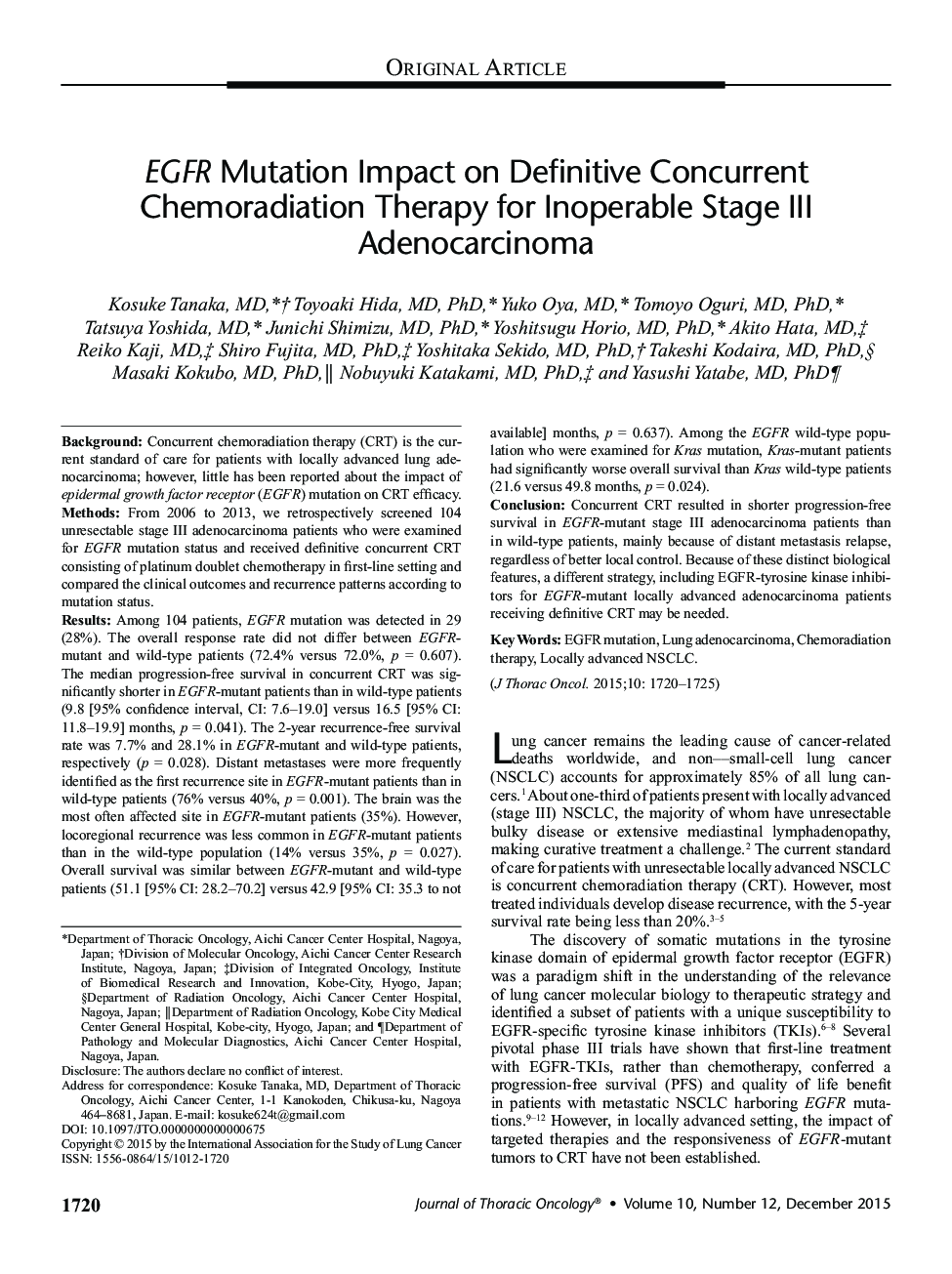| کد مقاله | کد نشریه | سال انتشار | مقاله انگلیسی | نسخه تمام متن |
|---|---|---|---|---|
| 3989249 | 1601652 | 2015 | 6 صفحه PDF | دانلود رایگان |

BackgroundConcurrent chemoradiation therapy (CRT) is the current standard of care for patients with locally advanced lung adenocarcinoma; however, little has been reported about the impact of epidermal growth factor receptor (EGFR) mutation on CRT efficacy.MethodsFrom 2006 to 2013, we retrospectively screened 104 unresectable stage III adenocarcinoma patients who were examined for EGFR mutation status and received definitive concurrent CRT consisting of platinum doublet chemotherapy in first-line setting and compared the clinical outcomes and recurrence patterns according to mutation status.ResultsAmong 104 patients, EGFR mutation was detected in 29 (28%). The overall response rate did not differ between EGFR-mutant and wild-type patients (72.4% versus 72.0%, p = 0.607). The median progression-free survival in concurrent CRT was significantly shorter in EGFR-mutant patients than in wild-type patients (9.8 [95% confidence interval, CI: 7.6–19.0] versus 16.5 [95% CI: 11.8–19.9] months, p = 0.041). The 2-year recurrence-free survival rate was 7.7% and 28.1% in EGFR-mutant and wild-type patients, respectively (p = 0.028). Distant metastases were more frequently identified as the first recurrence site in EGFR-mutant patients than in wild-type patients (76% versus 40%, p = 0.001). The brain was the most often affected site in EGFR-mutant patients (35%). However, locoregional recurrence was less common in EGFR-mutant patients than in the wild-type population (14% versus 35%, p = 0.027). Overall survival was similar between EGFR-mutant and wild-type patients (51.1 [95% CI: 28.2–70.2] versus 42.9 [95% CI: 35.3 to not available] months, p = 0.637). Among the EGFR wild-type population who were examined for Kras mutation, Kras-mutant patients had significantly worse overall survival than Kras wild-type patients (21.6 versus 49.8 months, p = 0.024).ConclusionConcurrent CRT resulted in shorter progression-free survival in EGFR-mutant stage III adenocarcinoma patients than in wild-type patients, mainly because of distant metastasis relapse, regardless of better local control. Because of these distinct biological features, a different strategy, including EGFR-tyrosine kinase inhibitors for EGFR-mutant locally advanced adenocarcinoma patients receiving definitive CRT may be needed.
Journal: Journal of Thoracic Oncology - Volume 10, Issue 12, December 2015, Pages 1720–1725